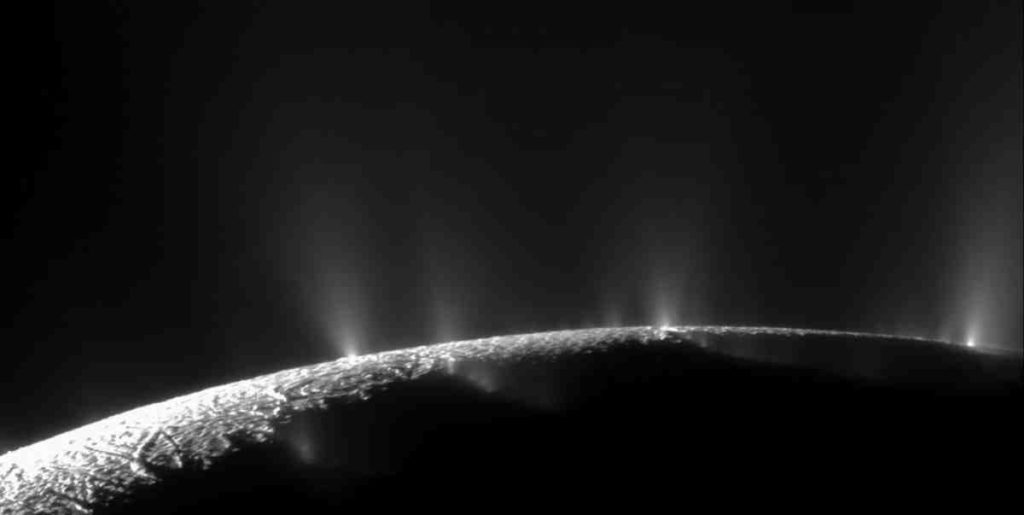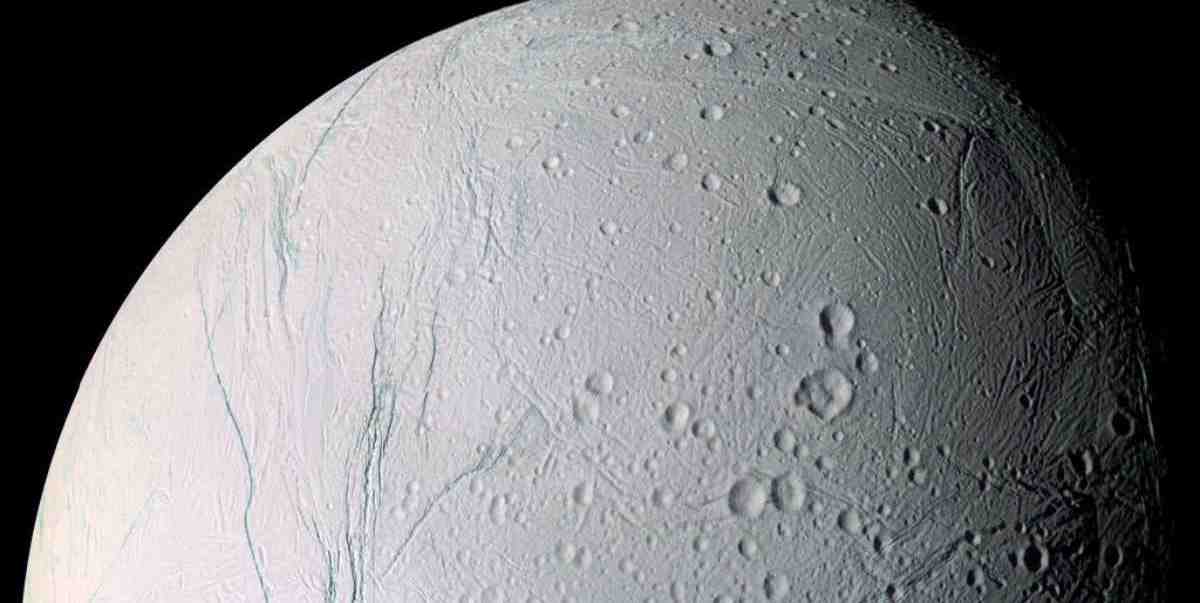UNITED STATES: In a groundbreaking discovery, NASA’s Cassini spacecraft has transmitted data back to Earth revealing that Saturn’s moon Enceladus possesses all the essential ingredients required for life. The findings have sparked excitement among scientists, further igniting the quest for extraterrestrial life in our solar system.
Enceladus has long been a subject of fascination due to its icy surface and the presence of geysers erupting from its south pole. Recently, the James Webb Space Telescope captured stunning images of water plumes shooting thousands of kilometers high from the moon’s surface. Now, researchers have unearthed yet another tantalizing revelation: the presence of phosphorus, a key chemical element vital for biological processes.

The detection of phosphorus was made possible through the meticulous analysis of data collected by Cassini’s Cosmic Dust Analyzer instrument during its extended mission, which lasted from 2004 to 2017. The spacecraft, during its 13-year sojourn around Saturn and its moons, studied the planet’s rings and the diverse moons orbiting it.
Scientists, led by a German team, focused their attention on the icy particles ejected from Enceladus and studied their composition. Their investigation led to the discovery of phosphorus locked inside salt-rich ice grains, which are expelled into space by the small moon. This groundbreaking finding has been published in the renowned scientific journal Nature.
Frank Postberg, a planetary scientist at the forefront of the study, expressed his excitement, stating, “We previously found that Enceladus’ ocean is rich in a variety of organic compounds. But now, this new result reveals the clear chemical signature of substantial amounts of phosphorus salts inside icy particles ejected into space by the small moon’s plume. It’s the first time this essential element has been discovered in an ocean beyond Earth.”
Phosphorus holds immense significance in the realm of life as we know it. It is one of the six chemical elements considered necessary for all living organisms, alongside carbon, oxygen, hydrogen, nitrogen, and sulfur. It plays a critical role in DNA structure, cell membranes, and energy-carrying molecules essential for various biological processes.
Moreover, the team’s geochemical modeling, conducted in collaboration with scientists from Europe and Japan, demonstrated that the concentration of phosphorus on Enceladus surpasses that found in Earth’s oceans by at least a hundredfold. These elevated levels exist in water-soluble forms of phosphate compounds, further enhancing the moon’s potential as a habitable environment, at least for microbial life.
Enceladus, approximately one-seventh the size of Earth’s moon and the sixth-largest among Saturn’s 146 known natural satellites, has become a prime candidate in the search for habitable locations within our solar system. However, scientists caution that the presence of phosphorus, complex organic compounds, water, and other crucial building blocks of life only indicate the potential habitability of Enceladus, not the presence of actual life forms.
While this discovery fuels hope for finding extraterrestrial life, further research and exploration are necessary to ascertain whether life indeed thrives beneath the icy surface of Enceladus. The tantalizing revelations from Cassini’s data have spurred scientists to consider future missions aimed at studying this enigmatic moon up close.
The quest for life beyond Earth continues, and Enceladus, with its promising conditions and abundant ingredients, has emerged as a beacon of hope in our exploration of the cosmos. As humanity ventures further into the depths of space, the secrets held by Saturn’s moon may yet unveil the profound mysteries of life’s origin and its existence beyond our home planet.
Also Read: Planet X: The Enigmatic Planet beyond Our Reach, Hiding Secrets of the Cosmos



